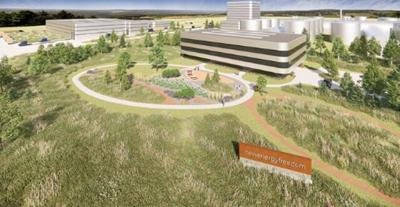MASON CITY, Iowa – Chemical giant Dow is signing up to be part of a major new economic development in North Iowa.
New Energy Blue has announced plans to locate a new facility in Mason City that is expected to process 275 kilotons of corn stover per year and produce commercial quantities of second-generation ethanol and clean lignin. The plant would be built 80 acres west of Golden Grain Energy along 43rd St SW, creating hundreds of jobs during the two-year construction phase and creating up to 100 new permanent jobs.
Dow expects to purchase bio-based ethylene created at the Mason City facility, reducing carbon emissions from plastic production, and using it in recyclable applications across transportation, footwear, and packaging.
The project is still waiting for state and local government approval.
Dow's agreement with New Energy Blue is the first agreement in North America to generate plastic source materials from corn stover (stalks and leaves). This is also Dow's first agreement in North America to utilize agriculture residues for plastic production.
"We are unlocking the value of agriculture residues in this new partnership with New Energy Blue," says Karen S. Carter, Dow President of Packaging & Specialty Products. "By committing to purchase their bio-based ethylene, we are helping to enable innovations in waste recycling, meeting demands for bio-based plastics from customers, and strengthening an ecosystem for diverse and renewable solutions."
"We're excited to be working with Dow to find solutions that create bio-based plastics from renewable resources," says Thomas Corle, CEO of New Energy Blue. "Together, we're building a future not only in the farm fields of Iowa using corn stover, but across America and around the world using a variety of biomass from grain straws to tall perennial grasses—wherever there's an opportunity to reduce carbon emissions from farming, support farmers in rural communities, and enable the production of the sustainable, low-carbon plastics used in everyday life."















